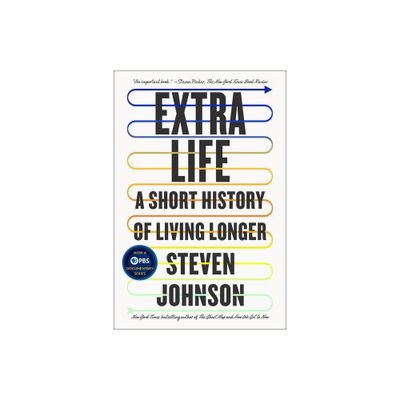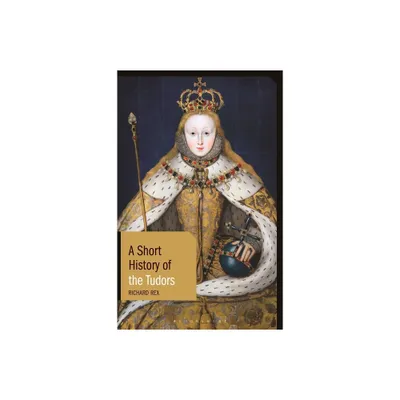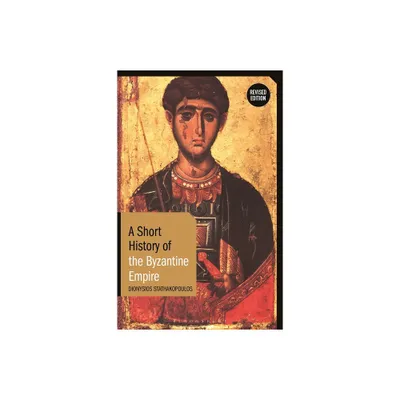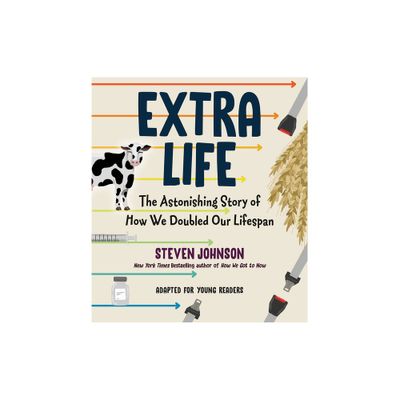Home
Extra Life: A Short History of Living Longer
Loading Inventory...
Barnes and Noble
Extra Life: A Short History of Living Longer
Current price: $20.00


Barnes and Noble
Extra Life: A Short History of Living Longer
Current price: $20.00
Loading Inventory...
Size: Audiobook
*Product Information may vary - to confirm product availability, pricing, and additional information please contact Barnes and Noble
“Offers a useful reminder of the role of modern science in fundamentally transforming all of our lives.” —President Barack Obama (on Twitter)
“An important book.” —Steven Pinker,
The New York Times Book Review
The surprising and important story of how humans gained what amounts to an extra life, from the bestselling author of
How We Got to Now
and
Where Good Ideas Come From
In 1920, at the end of the last major pandemic, global life expectancy was just over forty years. Today, in many parts of the world, human beings can expect to live more than eighty years. As a species we have doubled our life expectancy in just one century. There are few measures of human progress more astonishing than this increased longevity.
Extra Life
is Steven Johnson’s attempt to understand where that progress came from, telling the epic story of one of humanity’s greatest achievements. How many of those extra years came from vaccines, or the decrease in famines, or seatbelts? What are the forces that now keep us alive longer? Behind each breakthrough lies an inspiring story of cooperative innovation, of brilliant thinkers bolstered by strong systems of public support and collaborative networks, and of dedicated activists fighting for meaningful reform.
But for all its focus on positive change, this book is also a reminder that meaningful gaps in life expectancy still exist, and that new threats loom on the horizon, as the COVID-19 pandemic has made clear. How do we avoid decreases in life expectancy as our public health systems face unprecedented challenges? What current technologies or interventions that could reduce the impact of future crises are we somehow ignoring?
A study in how meaningful change happens in society,
celebrates the enduring power of common goals and public resources, and the hero's of public health and medicine too often ignored in popular accounts of our history. This is the sweeping story of a revolution with immense public
personal consequences: the doubling of the human life span.
“An important book.” —Steven Pinker,
The New York Times Book Review
The surprising and important story of how humans gained what amounts to an extra life, from the bestselling author of
How We Got to Now
and
Where Good Ideas Come From
In 1920, at the end of the last major pandemic, global life expectancy was just over forty years. Today, in many parts of the world, human beings can expect to live more than eighty years. As a species we have doubled our life expectancy in just one century. There are few measures of human progress more astonishing than this increased longevity.
Extra Life
is Steven Johnson’s attempt to understand where that progress came from, telling the epic story of one of humanity’s greatest achievements. How many of those extra years came from vaccines, or the decrease in famines, or seatbelts? What are the forces that now keep us alive longer? Behind each breakthrough lies an inspiring story of cooperative innovation, of brilliant thinkers bolstered by strong systems of public support and collaborative networks, and of dedicated activists fighting for meaningful reform.
But for all its focus on positive change, this book is also a reminder that meaningful gaps in life expectancy still exist, and that new threats loom on the horizon, as the COVID-19 pandemic has made clear. How do we avoid decreases in life expectancy as our public health systems face unprecedented challenges? What current technologies or interventions that could reduce the impact of future crises are we somehow ignoring?
A study in how meaningful change happens in society,
celebrates the enduring power of common goals and public resources, and the hero's of public health and medicine too often ignored in popular accounts of our history. This is the sweeping story of a revolution with immense public
personal consequences: the doubling of the human life span.


















